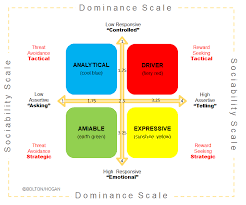Judgment in Managerial Decision Making
Effective decision making is crucial for the success of any organization, and managers play a key role in this process. One of the most important aspects of managerial decision making is judgment. Judgment involves the ability to assess situations, evaluate options, and make sound decisions based on available information.
Managers often face complex and ambiguous situations that require them to rely on their judgment to make the best possible decisions. Judgment in managerial decision making involves a combination of experience, intuition, and analytical thinking.
It is important for managers to be aware of potential biases that can affect their judgment. Common biases include overconfidence, anchoring, and confirmation bias. By being mindful of these biases, managers can make more objective decisions that are based on facts rather than emotions or preconceived notions.
Furthermore, managers can improve their judgment in decision making by seeking input from others, conducting thorough research, and considering multiple perspectives. By taking a systematic approach to decision making and involving others in the process, managers can reduce the likelihood of errors and make more informed choices.
In conclusion, judgment plays a critical role in managerial decision making. By developing strong judgment skills and being mindful of potential biases, managers can enhance their ability to make effective decisions that benefit their organizations in the long run.
5 Essential Tips for Effective Judgment in Managerial Decision Making
- Consider all available information before making a decision.
- Evaluate the potential risks and benefits of each option.
- Seek input from relevant stakeholders to gain different perspectives.
- Avoid making decisions based solely on emotions or personal biases.
- Be willing to adapt and change course if new information arises.
Consider all available information before making a decision.
When it comes to judgment in managerial decision making, a crucial tip is to consider all available information before making a decision. By thoroughly evaluating and analyzing all relevant data, managers can ensure that their decisions are well-informed and based on a comprehensive understanding of the situation at hand. Taking the time to gather and assess all available information can help managers make more strategic and effective decisions that align with the goals and objectives of their organization.
Evaluate the potential risks and benefits of each option.
When it comes to judgment in managerial decision making, a crucial tip is to evaluate the potential risks and benefits of each option. By carefully assessing the risks associated with each decision and weighing them against the potential benefits, managers can make more informed and strategic choices. This approach allows managers to consider the long-term implications of their decisions and choose the option that aligns best with their organizational goals and objectives. Ultimately, evaluating the risks and benefits of each option is essential for making sound and effective decisions in a managerial role.
Seek input from relevant stakeholders to gain different perspectives.
Seeking input from relevant stakeholders is a valuable tip in managerial decision making as it allows for the consideration of diverse perspectives. By involving key stakeholders in the decision-making process, managers can gain insights and feedback that may not have been otherwise considered. This approach not only helps in identifying potential blind spots but also fosters a sense of collaboration and inclusivity within the organization. Ultimately, seeking input from relevant stakeholders can lead to more well-rounded and informed decisions that are more likely to be accepted and implemented successfully.
Avoid making decisions based solely on emotions or personal biases.
It is essential for managers to avoid making decisions based solely on emotions or personal biases in order to ensure effective and objective decision making. Emotions and biases can cloud judgment and lead to decisions that may not be in the best interest of the organization. By taking a step back, evaluating situations objectively, and considering all relevant factors, managers can make more rational and informed decisions that are based on facts and logic rather than subjective feelings. This approach helps to promote sound decision making that aligns with the goals and objectives of the organization.
Be willing to adapt and change course if new information arises.
In managerial decision making, it is crucial to be willing to adapt and change course if new information arises. Being open to revisiting and adjusting decisions based on fresh insights or data can lead to more effective outcomes. By remaining flexible and responsive to changing circumstances, managers demonstrate a willingness to prioritize the best interests of their organization over sticking rigidly to initial plans. This proactive approach not only enhances the quality of decision making but also fosters a culture of continuous improvement and adaptability within the team.



